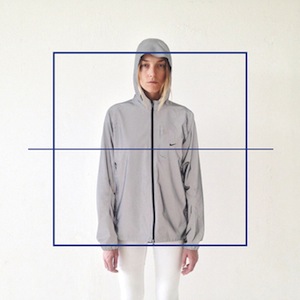Rene Hell Vanilla Call Option
Emerging from the subterranean murk of American underground cassette culture sometime around the end of […]

Emerging from the subterranean murk of American underground cassette culture sometime around the end of last decade, Rene Hell (a.k.a. Jeff Witscher) has demonstrated a remarkable ability to shapeshift and transform his sound since making the move to Type for his 2010 album, Porcelain Opera. For his latest sideways step, the producer/musician has moved to label-of-the-moment PAN in order to release his notably more minimalist new full-length, Vanilla Call Option. Allegedly inspired by the weightless, placeless experience of travel, the album constitutes a decisive break from Witscher’s increasingly elegant, classically leaning string- and synth-based compositions. Instead, Vanilla Call Option opts for an uncompromising musique concrete sound palette, one that’s heavy on digital scree, wildly oscillating modular synth tones, and an occasionally suffocating sense of dynamics.
The album was primarily composed in airports, performance spaces, and public libraries, and seems to offer a reflection of those transitory spaces. Vanilla Call Option‘s production is marked by a crisp fragility, one which seems on the verge of shattering at any moment and evokes the impersonal, alienating design of such public, functional spaces. The album’s first track, “Smile Models,” has a restless dynamic that is indicative of the release as a whole; opening with harsh, high-pitched noise and the guttural moaning of abused instruments, the piece then shifts into much more ambient territory, which is in turn sporadically interrupted by stuttering synth arpeggios. It’s undeniably difficult to get a grip on, but the track nonetheless makes for compelling headphone listening. Another thematic element running through Vanilla Call Option is its interesting deployment of the human voice. On “Unpack; glue,” for example, Witscher weaves imposing walls of white noise around muffled, chattering voices, which, barely audible, are rendered mute and asphyxiated. “Var_len” offers a different approach, layering choral vocal gasps alongside oscillating synths and scattered low end. Either way, the results are never short of unnerving.
The processed digital noise found on Vanilla Call Option is an interesting retreat from Witscher’s previously warm, often faintly nostalgic sound. However, what Vanilla Call Option lacks in terms of the eminent listenability of the gloopy synth drones and deconstructed techno that characterized previous Rene Hell releases, it makes up for in a compelling conceptual framework and a rich attention to sonic architectures. Witscher has some serious conceptual ambitions, and while there are moments when the album feels slightly undercooked, this dynamic, disorienting record proves that he remains an artist with a considerable degree of promise.

